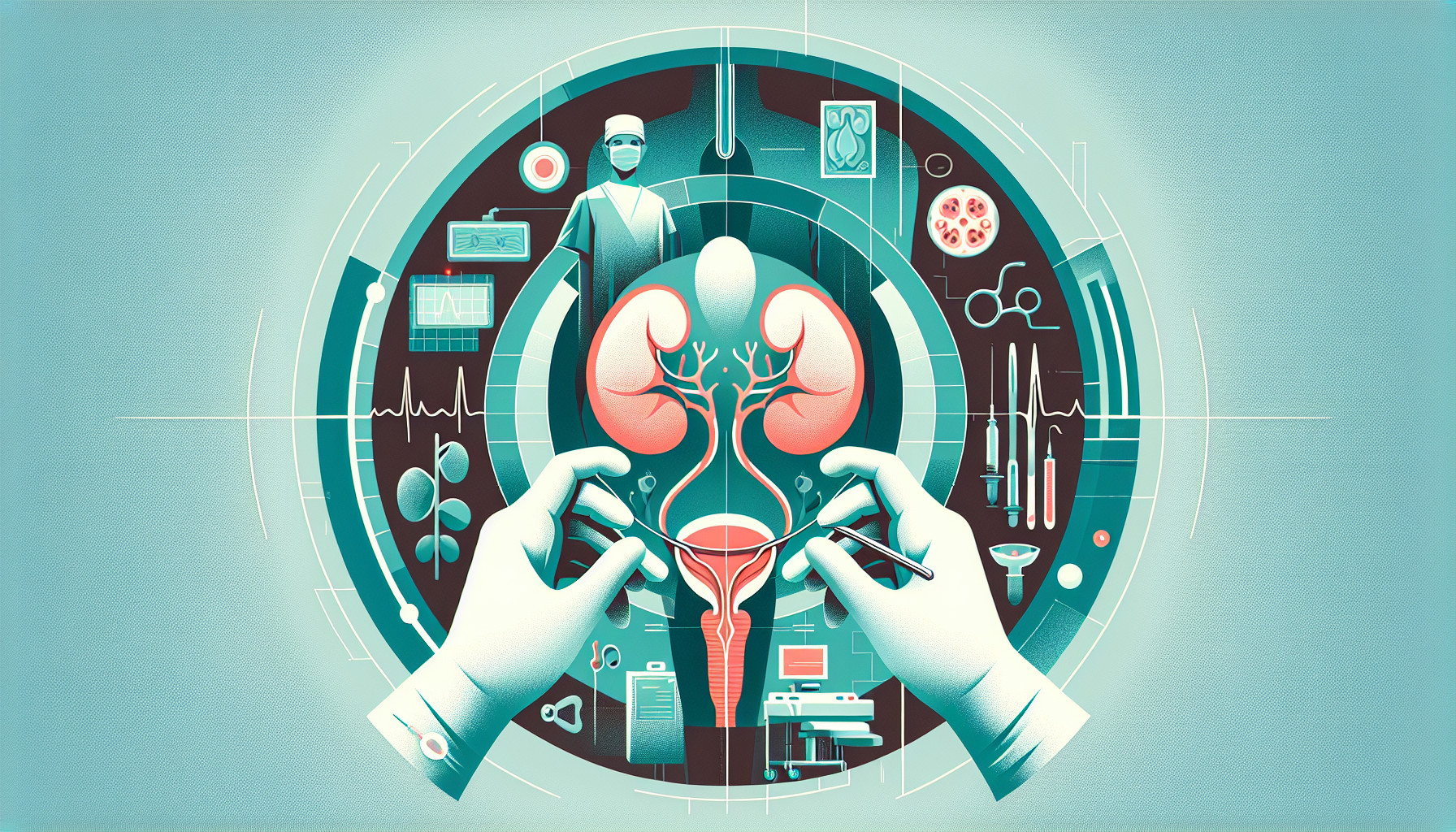Our Summary
This study looked at how well adults with spina bifida (a birth defect that affects the spine) and bladder augmentation (a surgery that increases the size of the bladder) follow a bladder irrigation protocol. Bladder irrigation involves regularly washing out the bladder using a special solution, a process that patients are usually advised to do every day.
The researchers found that none of the 87 patients studied followed the protocol strictly, and some did not follow it at all. They also found that factors like having had bladder stone surgery or having a catheterizable channel (a pathway created for a catheter to be inserted to drain urine) did not significantly influence how well patients adhered to the protocol. Interestingly, patients who performed their own catheterizations were more likely to follow the irrigation protocol than those who had caregivers do it for them.
In conclusion, the study found that adherence to the bladder irrigation protocol among these patients is generally poor, and it’s not clear why some patients are more likely to follow the protocol than others. The researchers plan to look into ways of improving adherence in the future.
FAQs
- What is bladder irrigation and who is it recommended for?
- Did any of the adult spina bifida patients in the study strictly adhere to the bladder irrigation protocol?
- Does having bladder stone surgery or a catheterizable channel affect how well patients follow the bladder irrigation protocol?
Doctor’s Tip
A helpful tip a doctor might tell a patient about bladder surgery is to carefully follow the post-operative instructions provided, including any recommended bladder irrigation protocol. Adhering to these instructions can help prevent complications and promote proper healing of the bladder. It may also be beneficial for patients to take an active role in their own care, such as performing their own catheterizations if possible, as this can improve adherence to the recommended protocol. If patients have difficulty following the protocol, they should communicate this to their healthcare provider for further guidance and support.
Suitable For
Patients who have undergone bladder augmentation surgery, especially those with spina bifida, are typically recommended bladder surgery. Other patients who may be recommended bladder surgery include those with recurrent urinary tract infections, bladder stones, urinary incontinence, or other bladder conditions that do not respond to conservative treatments.
Timeline
Before bladder surgery:
- Patient consults with a healthcare provider to discuss symptoms and treatment options
- Patient undergoes various tests and evaluations to determine the need for surgery
- Surgery is scheduled and patient receives pre-operative instructions
After bladder surgery:
- Patient is closely monitored in the hospital for a few days post-surgery
- Patient may experience pain, discomfort, and urinary symptoms during the recovery period
- Patient is instructed on how to care for their incision site and manage their bladder function
- Follow-up appointments are scheduled to monitor healing and address any concerns
- Patient may be advised to follow a specific post-operative care plan, such as bladder irrigation or catheterization
- Patient gradually resumes normal activities and may require physical therapy or other forms of rehabilitation
- Long-term follow-up care is provided to monitor bladder function and address any complications or concerns
What to Ask Your Doctor
Some questions a patient should ask their doctor about bladder surgery include:
- What is the purpose of bladder augmentation surgery?
- What are the potential risks and complications associated with bladder surgery?
- How long is the recovery process after bladder surgery?
- Will I need to follow a bladder irrigation protocol after surgery?
- How often will I need to perform bladder irrigation and for how long?
- What is the importance of following the irrigation protocol?
- What are the consequences of not following the protocol?
- Are there any lifestyle changes or precautions I should take after bladder surgery?
- How can I best manage any discomfort or pain after surgery?
- What signs or symptoms should I watch for that may indicate a problem with my bladder after surgery?
Reference
Authors: Peycelon M, Szymanski KM, Francesca Monn M, Salama AK, Risk H, Cain MP, Misseri R. Journal: J Pediatr Urol. 2020 Feb;16(1):33.e1-33.e8. doi: 10.1016/j.jpurol.2019.10.029. Epub 2019 Nov 6. PMID: 31796294
